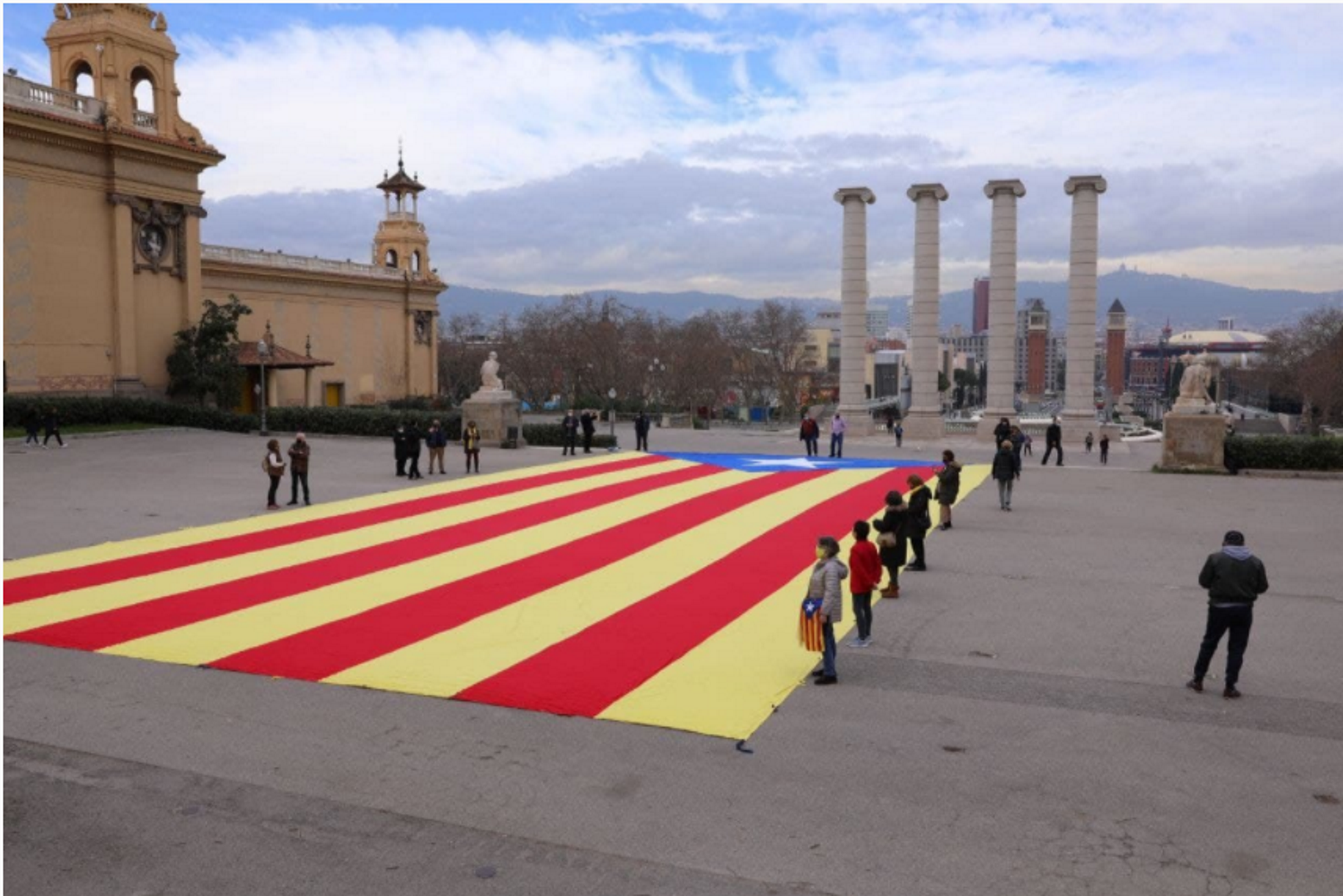For the first time, the support of Catalan voters for parties in favour of independence from Spain has exceeded the symbolic barrier of 50%. This was one of the key results of Sunday's parliamentary elections in Catalonia, as 51.32% of voters cast their ballots for pro-independence tickets. The three largest pro-Catalan republic parties - ERC, Junts and the CUP - not only have the seats in Parliament to form another government, but voter support for explicitly pro-independence lists also passes the critical threshold to become a majority choice when the votes for several extra-parliamentary pro-independence parties are added, with the PDeCAT standing out among these, with 76,900 votes (2.72%).
As well, the number of seats won by the sum of ERC, Junts and the CUP is the highest in history, and rises to 74 deputies: 33 for ERC (Catalan Republican Left), 32 for Junts (Together for Catalonia), and 9 for the CUP (Popular Unity), which gives a margin of 6 seats above the absolute majority, which is 68. In the previous legislature, the three pro-independence parties totaled 70 seats, 4 fewer than in the new Parliament.
Breaking the 50% barrier for votes in favour of the independence of Catalonia was one of the objectives of these parties, and they assert that it must have repercussions in relations with the Spanish state as regards accepting Catalan demands. The figure destroys the narrative of pro-Spain unionist groups claiming they have majority support in society. The president of the Catalan National Assembly (ANC), Elisenda Paluzie, celebrated: "We've done it, and that gives us a huge amount of strength."
⬛️⬜️📽@epaluzie👉Les bases de l'independentisme sou sòlides com una roca. Hem superat el 50%, una fita que l'Assemblea va fixar al seu full de ruta fa 2 anys. Això ens dona molta força. Ara toca que @Esquerra_ERC lideri un bloc unit i un govern per avançar cap a la independència. pic.twitter.com/ZoTz1t4QMs
— Assemblea Nacional Catalana (@assemblea) February 15, 2021
Translation:
"The foundations of pro-independence support are as solid as a rock. We have exceeded 50%, a milestone that the Assembly set on its roadmap 2 years ago. This gives us a lot of strength. Now it's up to ERC to lead a united bloc and a government to move towards independence." — Catalan National Assembly
In the previous parliamentary elections, on December 21st, 2017, forced by the Spanish government under Article 155 of the Spanish constitution, the independence bloc won an absolute majority, but remained at 47.5% of the vote. That figure was three tenths of a per cent lower than in the elections before that: the vote on September 27th, 2015, which was called by the pro-independence parties as a "plebiscite election", when the sum of Junts pel Sí and the CUP reached 47.8% of the vote.
Sunday's elections also stood out in that pro-independence voters had more options than ever to choose from: 7 parties instead of the three that have, until now, run on an explicit pro-independence ticket in the Catalan elections.
Voter turnout in this vote has been the lowest of all Catalan parliamentary elections since 1980, at 53.46%. By contrast, the 2017 elections had the highest turnout with 79.09%. Before now, the record for minimum participation had been set in 1992, when 54.87% of the electoral roll voted.
This year's election day took place in a climate of normality despite the many uncertainties arising from the coronavirus pandemic, which forced the administration to take elaborate safety measures at voting stations. The poll opened with 97% of polling stations constituted by 10am, the same number as in the 2017 elections - specifically, 8,895 of the 9,139 polling stations. The small number of voting centres subject to delay also opened as difficulties were resolved. "We are in a framework of normality," said Catalan foreign minister Bernat Solé, in charge of electoral processes, when offering electoral figures on election day morning.

